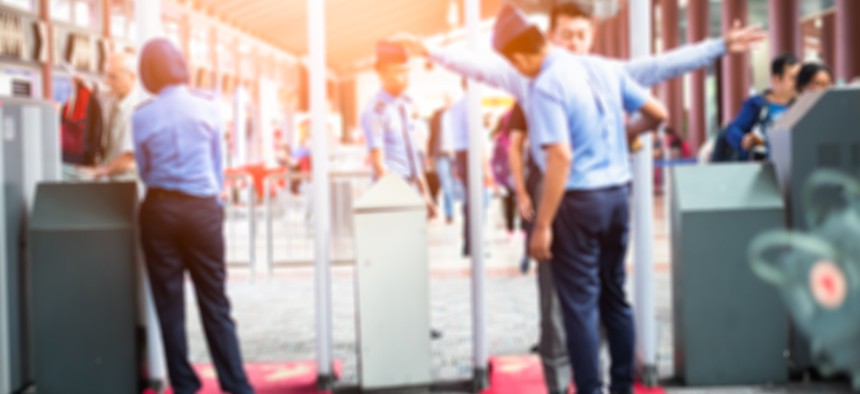Customs Reverses Course on Mandatory Facial Scans for U.S. Citizens

Thaspol Sangsee/Shutterstock
After criticism from Congress and privacy advocates, the border security agency says it will pull back a proposed rule change.
Customs and Border Protection reversed course on a proposed plan to require all U.S. citizens to participate in its facial recognition entry/exit programs—a move that would have removed the ability to opt out.
The agency is testing facial biometric programs at more than 20 ports of entry, including land crossings, seaports and airports. At the latter, airlines have teamed with CBP to use its algorithm as part of the boarding process, matching in-motion images captured of travelers against the photos in the flight manifest.
Since CBP’s facial recognition program began in September 2018, U.S. citizens and green card holders have technically been exempt from participating, though those passengers have to actively opt out.
A notice posted to the Office of Information and Regulatory Affairs’ website showed the agency intended to change that policy. Though the notice only began the rule change process—a CBP spokesperson stressed to Nextgov that the decision was far from made—privacy advocates were outspoken against the change.
On Thursday, the agency said it officially decided to rescind the proposed change.
“There are no current plans to require U.S. citizens to provide photographs upon entry and exit from the United States,” a CBP spokesperson said in a statement. “CBP intends to have the planned regulatory action regarding U.S. citizens removed from the unified agenda next time it is published.”
The agency’s original plan was designed to streamline the biometric entry/exit process, the spokesperson said, which aligns with the goal as stated in the notice:
To facilitate the implementation of a seamless biometric entry-exit system that uses facial recognition and to help prevent persons attempting to fraudulently use U.S. travel documents and identify criminals and known or suspected terrorists, [the Homeland Security Department] is proposing to amend the regulations to provide that all travelers, including U.S. citizens, may be required to be photographed upon entry and/or departure.
However, after hearing from private sector privacy advocates and members of Congress, CBP decided not to pursue the change.
“This is a victory for every single American traveler who flies on a plane, and a reminder that we must remain vigilant protectors of our right to privacy,” said Sen. Edward Markey, D-Mass., who was vocal in his opposition to the proposed change. “Thanks to swift and public pressure, Homeland Security is reversing course and not moving forward with its dystopian facial recognition proposal at U.S. airports.”
Markey called the reversal a win but said the war continues.
“We cannot take our right to privacy for granted,” he said. “Americans still need protection from facial recognition technology, and I still plan to introduce legislation to ban this kind of invasive biometric surveillance.”






